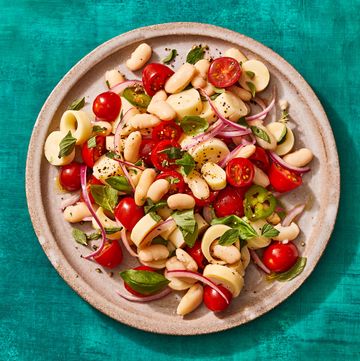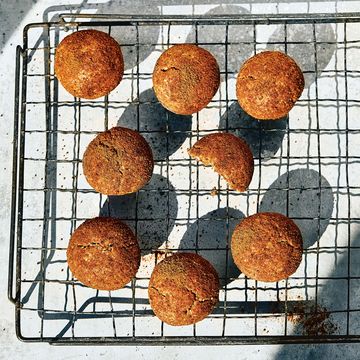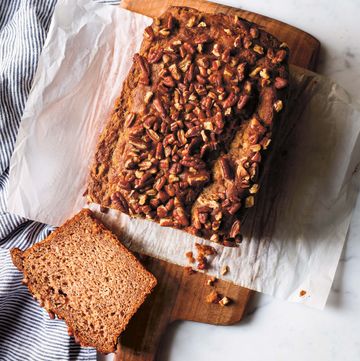- The FDA reported which dairy products are safe to eat amid the recent bird flu outbreak.
- Bird flu has now been detected in 36 dairy herds in nine states.
- Public health officials explain how to stay safe.
Concerns over food safety rise along with cases of the bird flu in the U.S. after the U.S. Food and Drug Administration (FDA) reported avian influenza was found in milk. Even more, 36 cattle herds in nine states, and one human, tested positive for bird flu since late March, leading the FDA to test dairy products for the virus.
According to the FDA’s most recent update, the agency conducted tests on 297 pasteurized retail dairy products from 38 states after previous findings showed that fragments of the virus got into the commercial milk supply. The FDA deemed commercial milk safe, and went a step further to test powdered infant and toddler formulas for the virus, reporting no evidence of the bird flu in the products as well.
Meet the expert: Amesh A. Adalja, M.D., senior scholar at the Johns Hopkins Center for Health Security
Ahead, we break down the foods that are safe to eat during the bird flu outbreak, and what to avoid.
Wait, what is bird flu?
“Bird flu” is a colloquial term for avian influenza, which refers to influenza viruses that naturally circulate in avian species, says Amesh A. Adalja, M.D., senior scholar at the Johns Hopkins Center for Health Security.
At this point in time, there is no evidence that the circulating strain of the bird flu, called H5N1, spreads easily from person to person. The spread of bird flu viruses from one infected person to a close contact is very rare, and when it has happened, it has not led to continued spread among people, according to the Centers for Disease Control and Prevention (CDC).
How does someone contract bird flu?
Historically, humans can contract avian influenza from animals, says Dr. Adalja. “In fact, the 1918 influenza pandemic virus was an avian influenza virus,” he notes. Most current cases of bird flu in humans are clustered in individuals who have close contact with infected poultry, though one case has been linked to infected cattle, he adds.
Keep in mind, though, that the person’s case was mild and reported eye redness (consistent with conjunctivitis), as their only symptom. No hospitalizations or deaths have been reported as of press time.
Still, the risk to the general public remains low, Dr. Demetre Daskalakis, director of the CDC’s National Center for Immunization and Respiratory Diseases, told NBC.
Foods safe to eat during bird flu outbreak
The FDA made clear that the tests showed that the products didn’t contain a live virus that could make people sick. In their findings, the FDA determined that in dairy products including cottage cheese and sour cream, in addition to fluid milk, pasteurization was effective in inactivating the virus and these products are safe to eat.
All dairy products are safe to consume with the exception of dairy that is not pasteurized, says Dr. Adalja. He also notes that “beef is completely safe to eat.”
Per the FDA report, the following products are safe to eat and enjoy:
- Cottage cheese
- Sour cream
- Pasteurized milk and dairy products
- Beef
The new preliminary results “affirm the safety of the U.S. commercial milk supply,” Don Prater, acting director of the FDA’s Center for Food Safety and Applied Nutrition, said during the briefing. He also shared that the latest findings confirm that the pasteurization process inactivates the virus, making the previously infected dairy products unable to infect people. While the FDA tested raw milk for live virus, the agency strongly advises against drinking unpasteurized, raw milk.
Avian influenza is only the newest reason not to partake in unpasteurized dairy products as there are scores of potentially dangerous pathogens present in “raw” or unpasteurized milk products, adds Dr. Adalja.
Foods to avoid during bird flu outbreak
Experts say that foregoing unpasteurized products is key to avoiding bird flu. More specifically, make sure that you do not consume:
- Unpasteurized milk
- Dairy products made from unpasteurized milk
- Undercooked eggs, poultry, and meat
Symptoms of bird flu
There are no specific symptoms of “bird flu,” says Dr. Adalja. Bird flu is “influenza and causes the same spectrum of illness/symptoms but, in some cases, the symptoms might be more severe.” For example, more severe pneumonia might ensue, he notes.
Per the CDC, here are the most common symptoms of the flu:
- Fever or feeling feverish/chills
- Cough
- Sore throat
- Runny or stuffy nose
- Muscle or body aches
- Headaches
- Fatigue (tiredness)
- Vomiting and diarrhea (more common in children than adults)
The bottom line
In general, you don’t have to worry too much about your exposure to bird flu in the supermarket or at the dinner table. As long as you avoid consuming raw milk products (and raw poultry or beef), you should feel free to keep enjoying the milk, cheese, and yogurts that you already have in your daily diet.
This is a developing story that is accurate as of press time.
Madeleine, Prevention’s assistant editor, has a history with health writing from her experience as an editorial assistant at WebMD, and from her personal research at university. She graduated from the University of Michigan with a degree in biopsychology, cognition, and neuroscience—and she helps strategize for success across Prevention’s social media platforms.












